Ohio Boating License: Essential Guide for Safe and Legal Adventures
Ohio is home to an abundance of waterways, offering diverse opportunities for boating enthusiasts, from scenic river cruises to thrilling water sports. Whether you are a seasoned boater or a beginner, obtaining an Ohio boating license is a critical step in ensuring a safe and enjoyable experience on the water. State residents born after January 1, 1982, are required to obtain a boating license if they wish to operate a watercraft with over 10 horsepower.

To obtain a boating license in Ohio, applicants must meet certain age, residency, and education requirements. Boater education plays a significant role in the licensing process, as prospective boaters must complete an approved boating education course or pass a proficiency exam. Upon successful completion, boaters will be equipped with the necessary knowledge of Ohio's boating laws, safety rules, and best practices for operating watercraft on the state's beautiful waterways.
Key Takeaways
- Obtaining an Ohio boating license is crucial for safe enjoyment of the state's waterways
- The licensing process involves meeting age, residency, and education requirements
- Boater education is key to understanding Ohio's boating laws and safety rules

Understanding Ohio Boating License Requirements
Ohio has specific boating license requirements for those who wish to operate a motorized watercraft. The criteria for obtaining a boating license depend on the individual's age, residency status, and education level.
Individuals born after January 1, 1982, are required to have a boating license to operate a watercraft with more than 10 horsepower. To obtain a license, boaters need to complete an approved boating education course. These courses are available in various formats such as classroom, online, or home study. The courses' duration and costs may vary, but some options are even available for free.
Ohio boating laws apply to all waters within the state, including private waterways. It is essential for all boaters to be familiar with the Ohio Boat Operator's Guide which provides helpful information about state laws and safety guidelines.
The U.S. Coast Guard plays a crucial role in promoting maritime safety and protecting the marine environment. They enforce federal boating regulations on navigable waters and offer numerous resources for boaters to improve their knowledge and comply with the laws.
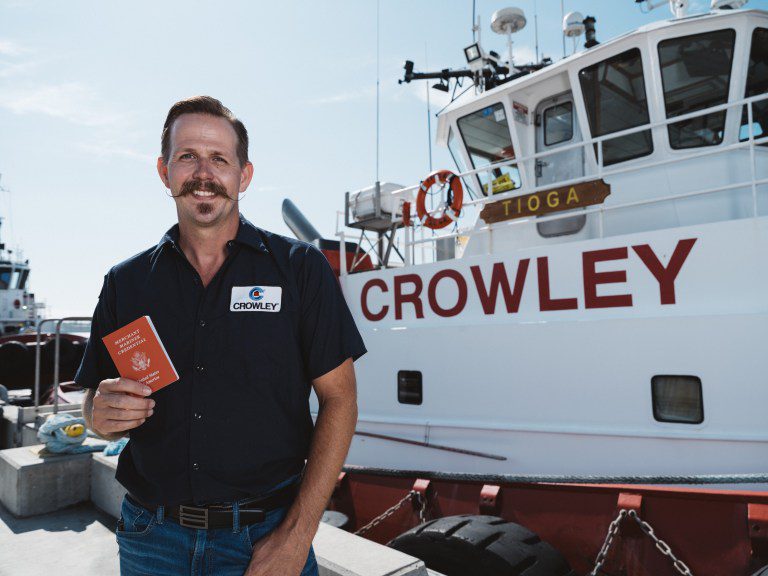
When acquiring an Ohio boating license, applicants must consider the following eligibility requirements:
- Age: The applicant must be a minimum age of 16 years old.
- Residency: Ohio residency is required for obtaining a state boating license.
- Education: Completion of an approved boating safety course is mandatory for those born after January 1, 1982.
By understanding these Ohio boating license requirements and adhering to federal and state laws, boaters can ensure a safe and enjoyable experience on the water. It is everyone's responsibility to preserve the marine environment and protect fellow boaters by following proper safety guidelines and obtaining the necessary licenses.
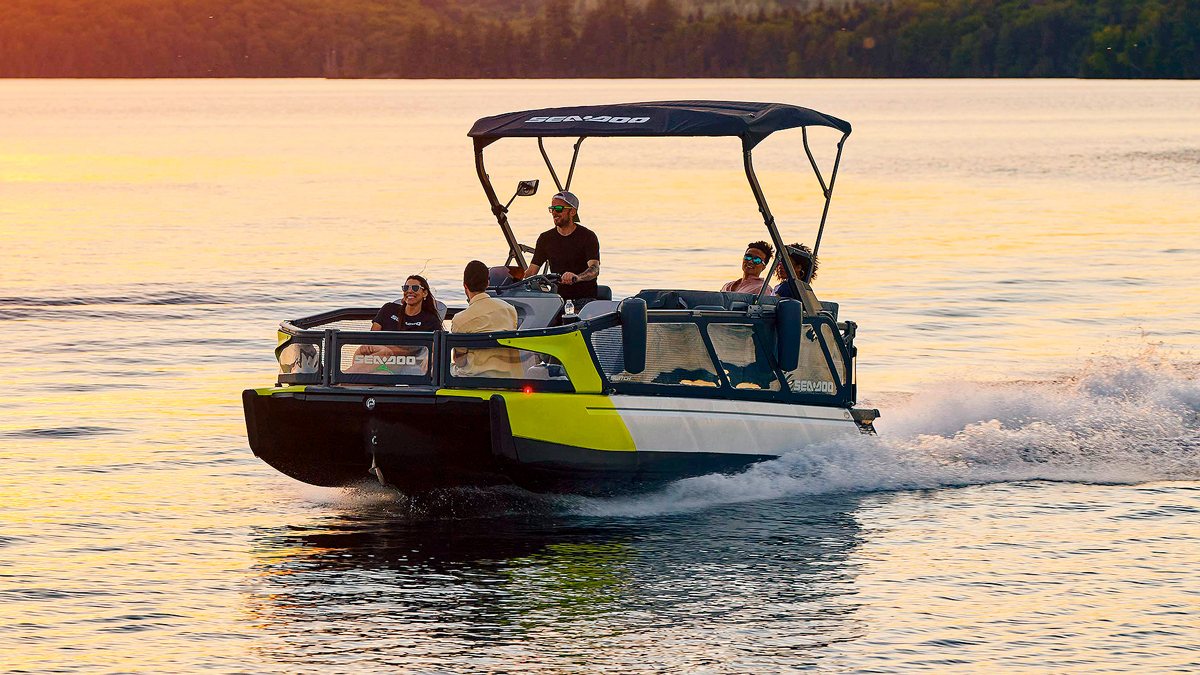
Types of Watercrafts in Ohio
Ohio offers a diverse range of watercrafts for both recreational and practical purposes. The state's lakes, rivers, and numerous waterways provide ideal settings for various types of boating experiences.
Personal watercrafts are popular choices for those seeking a thrilling ride on the water. These small, fast, and highly maneuverable vessels, such as jet skis, allow riders to enjoy the excitement of speed and adrenaline. They are typically designed for one or two passengers, making them perfect for solo adventures or a fun day out with a friend.
Canoes and kayaks are among the most common hand-powered vessels in Ohio. Many people prefer these watercrafts for their simplicity, ease of maneuverability, and the opportunity they provide to experience nature up close. Canoes are usually larger and can hold more passengers, making them ideal for families or groups, while kayaks are typically smaller and more agile, best suited for individual paddlers.
Powerboats are motorized vessels that come in various sizes and styles, such as speedboats, fishing boats, or pontoon boats. These boats offer a range of activities including water skiing, wakeboarding, and tubing. Powerboats enable families and friends to spend time together while fishing, cruising, or simply enjoying the scenic beauty of Ohio's waterways.
Recreational boats encompass a broader category covering different types of watercrafts used mainly for leisure activities. This category includes sailboats, cruisers, and cabin boats designed for enjoying extended periods on the water.
Overall, Ohio's waterways cater to a wide array of boating preferences and experiences. Whether you are looking for something relaxing like a canoe trip down a serene river, or an exhilarating ride on a high-speed personal watercraft, the options are plentiful for both beginners and experienced boaters in Ohio.

The Licensing Process
In Ohio, obtaining a boating license involves completing an approved safety course offered by authorized providers. The process starts with signing up for an online course where individuals can study at their own pace and take quizzes at the end of each chapter.
The online course covers various topics, including boater education, safety procedures, and Ohio boating regulations. It is designed to comply with the National Association of State Boating Law Administrators (NASBLA) requirements, which mandate a minimum of 3 hours of study before taking the final exam.
After completing the study materials, students proceed to the final test, which consists of multiple-choice questions. They only pay for the course once they have successfully passed the exam, and there are no extra charges for retaking the test if needed.
Upon passing the final exam, individuals receive their boater certification. They can immediately print the temporary certificate and use it while waiting for the permanent card to be mailed to their address. This boating license is required for operating a motorized watercraft on Ohio waters and is recognized by other states with similar boater education laws.
In summary, the licensing process involves signing up for an online course, studying at one's own pace, taking the final exam, and receiving the boater certification upon successful completion. This efficient and accessible method ensures Ohio boaters are well equipped with the necessary knowledge and skills to navigate the waters safely.
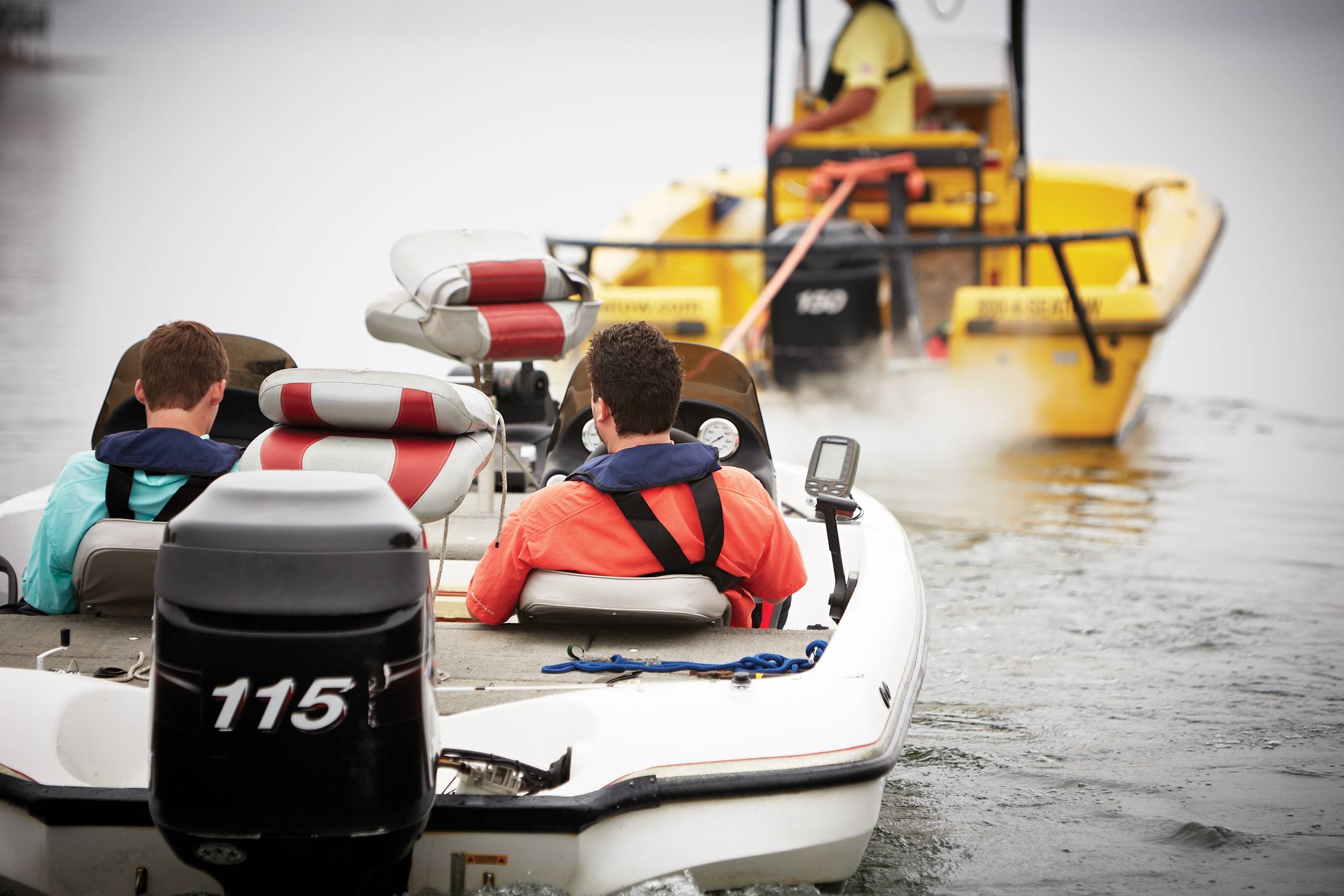
Boater Education and Safety
In Ohio, boater education and safety are essential for individuals planning to operate boats or personal watercraft. To ensure safety on the water, the state has established certain education requirements for boaters. These requirements, regulated by the Ohio Department of Natural Resources and the National Association of State Boating Law Administrators (NASBLA), aim to reduce boat accidents and fatalities through proper boating education.
An important aspect of boater education and safety is obtaining a boater education card. To satisfy Ohio's requirements, one must take and pass an approved boating education course which can be in the form of a classroom, online, or home study course. In addition, boaters may also choose to take and pass a proficiency exam. The prices and time investment for these options vary, but they all serve the purpose of fulfilling the education requirements.
For individuals born on or after January 1, 1982, and planning to operate a boat or personal watercraft with 10hp or more, taking a boater safety course becomes mandatory. Several organizations offer comprehensive boater safety courses that are recognized by both the US Coast Guard and NASBLA. One example of a reputable organization is the BoatUS Foundation, which provides a free online boating safety course approved by Ohio's Division of Parks & Watercraft.
Education classes that align with NASBLA standards are crucial for boaters in Ohio, as they provide the knowledge and skills needed to maintain responsible and safe behavior on the water. These classes usually cover topics such as navigation rules, local boating regulations, emergency preparedness, and safe boat operation practices.
In conclusion, boater education and safety play significant roles in Ohio's efforts to create a secure and enjoyable boating environment. Obtaining a boater education card, fulfilling education requirements, and participating in NASBLA-approved education classes are essential steps towards ensuring a safe boating experience for everyone on Ohio's waterways.
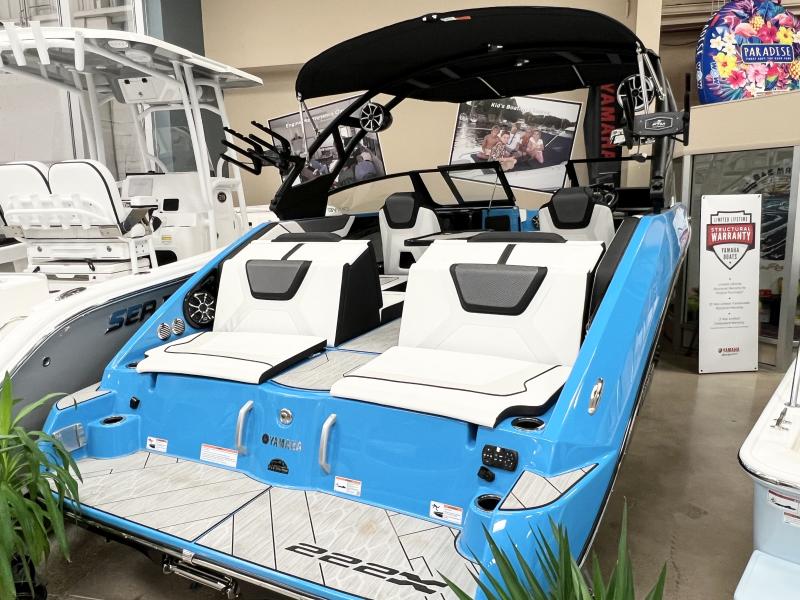
Registration of Your Watercraft
Registering your watercraft in Ohio is an essential step to legally operate it on the state's waterways. The Ohio Department of Natural Resources (ODNR) requires registration for almost all recreational boats, including powerboats, sailboats, canoes, kayaks, pedal boats, and inflatable boats 1.
To register your boat in Ohio, you'll need to complete a Certified Watercraft Registration Application (DNR-8460R) and provide proof of ownership, such as a bill of sale or title. Additionally, you'll need to fill out an Affidavit of Ownership, which is included in the registration application. It's important to have your OH numbers displayed on your watercraft once it is registered.
There are two options available for boat registration: traditional and alternative. Traditional registration is valid for three years, while alternative registration is valid for one year and typically used for canoes, kayaks, and pedal boats. Make sure to submit all documents, fees, and forms to the ODNR Division of Parks and Watercraft.
The registration fees vary depending on the type, length, and use of your watercraft. You can find the specific fees associated with your boat on the ODNR website. It's essential to pay the appropriate fee to ensure your boat's registration is processed successfully.
Remember, registering your watercraft is a crucial part of responsible and legal boating in Ohio. Take the necessary steps to submit a Certified Watercraft Registration Application, provide proof of ownership, and pay the registration fees to fully enjoy Ohio's beautiful waterways.
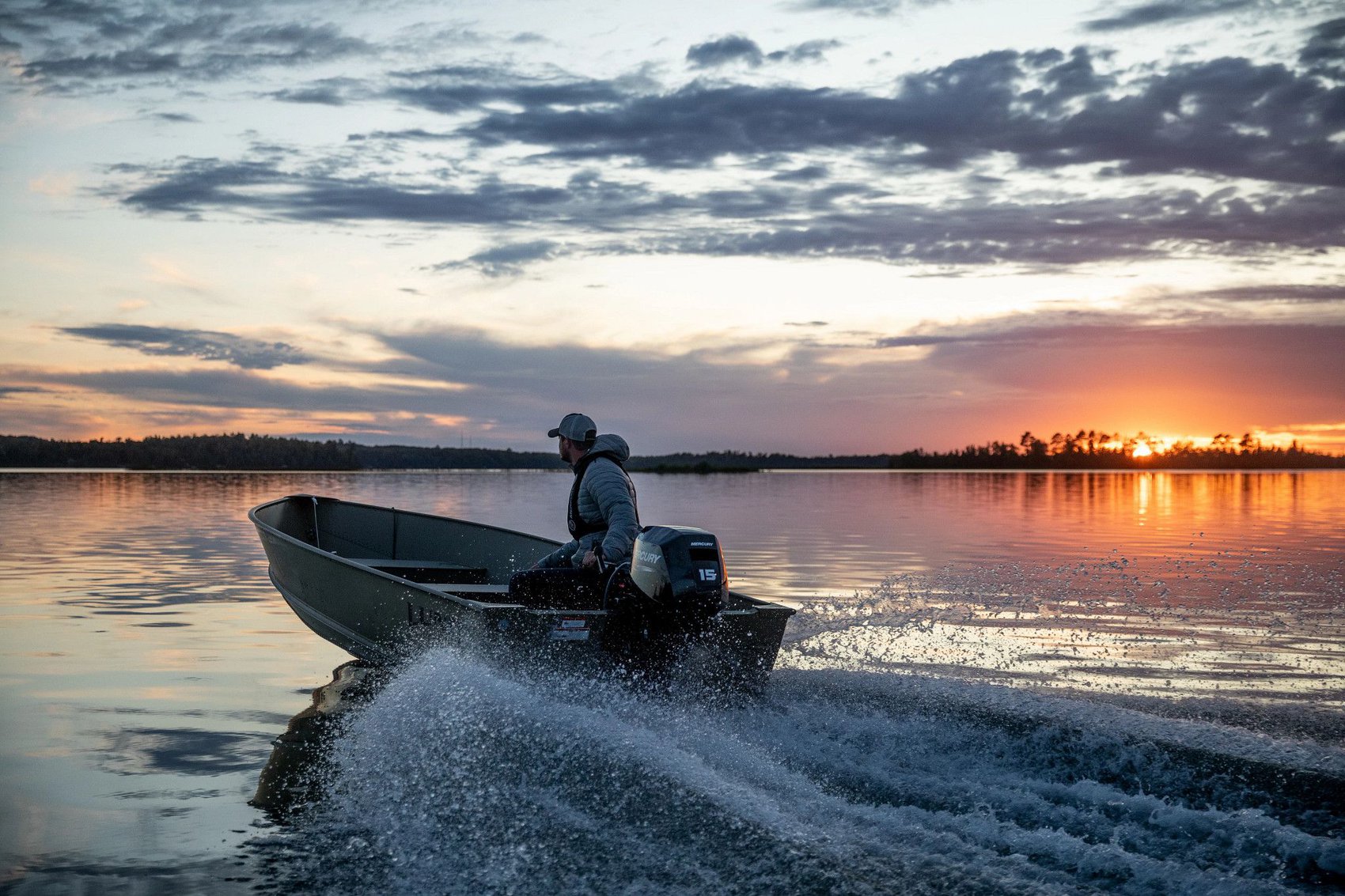
Ohio Boating Laws and Safety Rules
The Ohio Department of Natural Resources (ODNR) is responsible for regulating boating activities within the state, ensuring the safety of both boaters and Ohio's waterways. Operating a boat in Ohio requires adherence to specific laws and rules which are set forth by the ODNR.
One important aspect of Ohio boating laws is the Boating Education Requirement, which mandates that individuals complete a boating course before obtaining a license. The course must be approved by the National Association of State Boating Law Administrators (NASBLA) and provide a certificate as proof of boater education. This requirement ensures that boaters are knowledgeable about safety procedures and responsible boating practices. To fulfill this requirement, an individual can take any online course that provides certified proof of general boater education.
In addition to education requirements, Ohio boating laws also dictate necessary safety equipment on board depending on the type and size of the boat, as well as the age and activity level of the passengers. To be compliant with these regulations, it is essential to familiarize oneself with the required safety gear for a specific craft and outing. This may include life jackets, navigation lights, fire extinguishers, and visual distress signals.
It's also important to know that Ohio prohibits boating under the influence (BUI) of alcohol or drugs, in line with driving rules. Boaters must maintain a blood alcohol concentration (BAC) of less than 0.08%, or risk facing severe penalties such as loss of boating privileges, fines, or imprisonment.
Lastly, boaters should be aware that all watercraft in Ohio must be registered with the state. Registration fees and processes will depend on the type of boat and duration of the registration. For example, transferring ownership of an unexpired registration requires a $5 fee.
By following the Ohio boating laws and safety rules outlined by the ODNR, boaters can ensure a safe and enjoyable experience on the water for everyone involved.

Exploring Ohio's Waterways
Ohio boasts an abundance of beautiful waterways for boaters, anglers, and outdoor enthusiasts to explore. From the vast Lake Erie to winding rivers and serene reservoirs, the state offers a diverse landscape of scenic destinations for boating enthusiasts.
Lake Erie is the crown jewel of Ohio's waterways, stretching over 9,000 square miles and offering countless opportunities for recreational boating, sailing, and fishing. The lake's shoreline is dotted with picturesque marinas and charming towns, providing ample facilities for both novice and experienced boaters. Known for its excellent walleye and perch fishing, Lake Erie draws anglers from across the region.
The Ohio River, another popular boating destination, flows over 450 miles along the state's southern border. Its diverse terrain includes calm stretches perfect for leisurely cruises, as well as more challenging sections and tributaries for adventurous boaters. Numerous marinas, boat ramps, and state parks along the river make it accessible for those wishing to explore its scenic beauty.
In addition to Lake Erie and the Ohio River, Ohio is home to an array of reservoirs, such as the Hoover Reservoir, Alum Creek Reservoir, and Caesar Creek Lake. These man-made lakes offer pristine environments for boating, fishing, paddling, and birdwatching. With well-maintained facilities and easy access, the reservoirs are popular spots for families and avid boaters alike.
Furthermore, Ohio's inland lakes, including Indian Lake, Buckeye Lake, and Mosquito Lake, provide even more opportunities for boating recreation. These lakes are known for their clean, clear waters and abundant fish populations, making them ideal destinations for anglers and pleasure boaters.
Before heading out on Ohio's waterways, it is essential to obtain an Ohio boating license and learn about the state's boating regulations. Proper preparation and adherence to safety guidelines ensure a fun, enjoyable experience for all as they explore Ohio's outstanding aquatic resources.
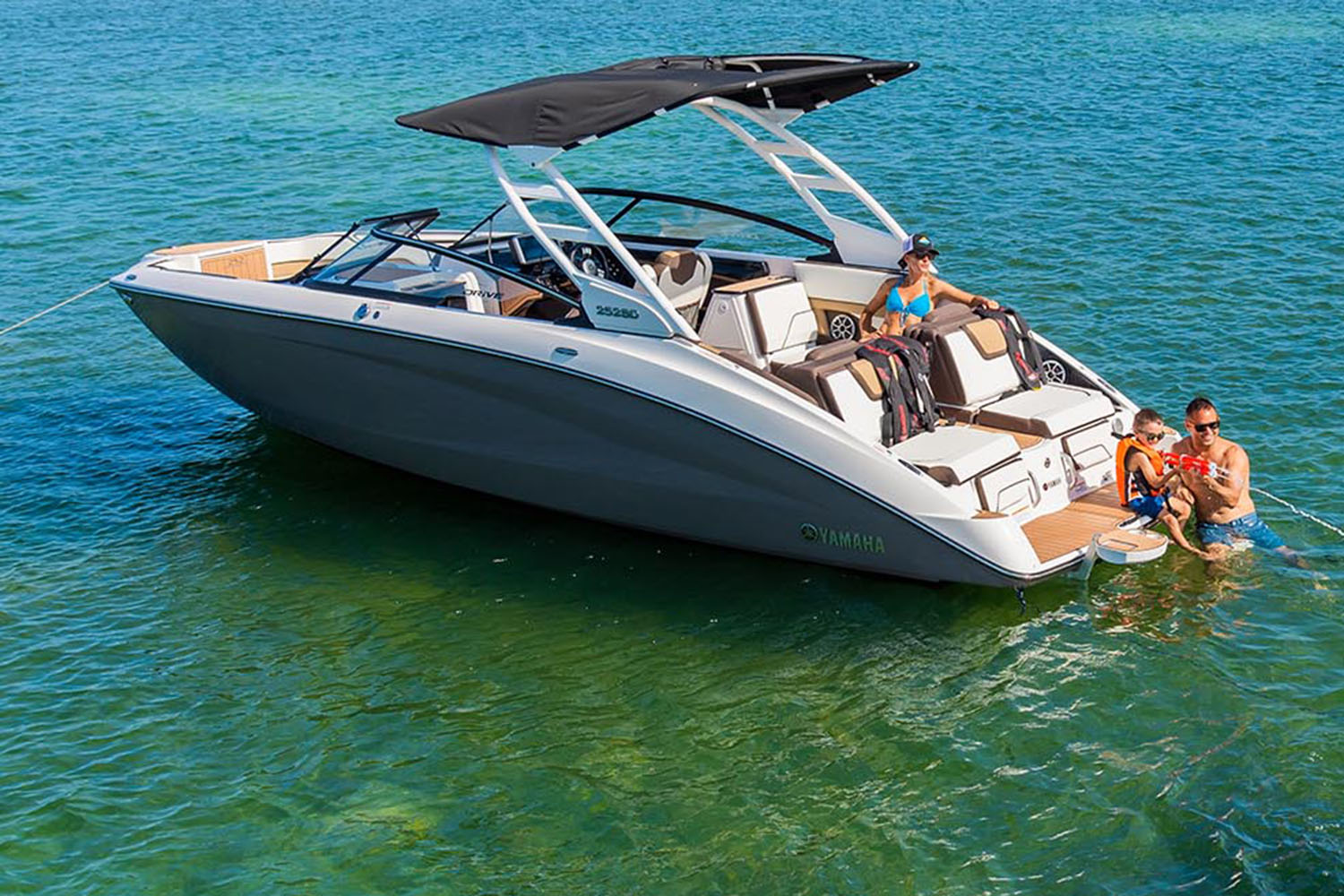
Additional Services and Information
Ohio offers a variety of services and resources for boaters to enhance their knowledge and expertise. One such resource is the Ohio Boat Operator's Guide, which provides a comprehensive summary of boating laws and rules specific to the state.
There are multiple ways to meet Ohio's boater education requirements. One option is to take an online course, such as those offered by boat-ed.com, that provides NASBLA-approved certification. Another alternative is a home study course, which allows boaters to complete their education in a self-paced manner. Upon completion of the coursework, some boaters may be required to pass a proficiency exam to demonstrate their understanding of boating safety.
Ohio's watercraft offices provide essential services such as boat registration and titling. In order to register a boat in Ohio, individuals must provide proof of ownership, detailed information about the boat and owner, a driver's license, and the applicable registration fee. Registrations are valid for three years and expire on March 1st. More information about the boat registration process can be found on the Registering Your Boat in Ohio webpage.
Finally, for those seeking a more interactive boating experience, the Wavve Boating app offers a convenient solution. This app provides boaters with easy-to-use navigation tools, up-to-date maps, and important information like weather updates, making it an invaluable resource for boating enthusiasts in Ohio and beyond.

Insurance and Ownership Formalities for Your Boat
In Ohio, it's essential to have proper insurance coverage and documentation for your boat. Boat insurance is crucial for protecting your investment and ensuring that you have financial coverage in case of accidents or damages. It is advisable to choose a policy that provides adequate coverage for your unique boating needs.
Another important aspect of boat ownership in Ohio is the registration process. The Ohio Department of Natural Resources (ODNR) requires that most types of watercraft be registered with their Division of Parks & Watercraft. Registration helps the state keep track of ownership and ensures that boating regulations are upheld. Certain watercraft, such as canoes, kayaks, and paddleboards, are exempt from registration.
Proof of ownership must be provided during the registration process. This generally involves submitting a certified watercraft registration application (DNR 8460R) along with payment and any other required documentation. In Ohio, boat registrations are valid for a specific period, and they must be renewed before they expire. More information on registering a boat in Ohio can be found on the ODNR website.
For those who buy a used boat with unexpired registration, the ownership transfer process involves a $5 fee, submitting the DNR 8460R form, and receiving a new registration with the new owner's name and address. This ensures that the boat's registration remains valid during the change of ownership.
Complying with the insurance and ownership formalities for your boat in Ohio ensures legal and financial protection, as well as a safe and enjoyable boating experience in the Buckeye State.

Boating Activities in Ohio
Ohio offers a wide variety of boating activities for residents and visitors alike. With numerous lakes, rivers, and waterways, there are endless opportunities for recreational boating, including fishing, skiing, and other water sports.
Fishing enthusiasts can explore Ohio's scenic waterways, abundant with diverse fish species. Popular destinations for anglers include Lake Erie, one of the largest freshwater lakes in the world, and the Ohio River, offering excellent catches such as walleye, perch, and bass. Additional inland lakes and reservoirs, such as Alum Creek Lake and Caesar Creek Lake, provide tranquil fishing spots as well.
Skiing is another popular boating activity in Ohio. Water skiers can enjoy the spacious waterways of the Buckeye State, with smooth surfaces perfect for honing their skills. Both beginners and experienced skiers alike can find suitable spots to glide through the water, efficiently executing turns and enjoying a thrilling ride.
Ohio also offers various boating education and skill courses to enhance safety and responsible boating practices. Meeting the state's boater education requirements is essential for all boat operators. Individuals can choose from classroom, online, or home study courses to complete their boating education.
Overall, Ohio has a thriving boating scene with diverse activities available for all skill levels. From fishing and skiing to leisurely cruises, the waters of Ohio promise unforgettable experiences for boat enthusiasts.

Frequently Asked Questions
How long is an Ohio boating license valid?
In Ohio, it is not actually called a "boating license" but an Ohio Boater Education Certificate. This certificate serves as official proof that you have successfully completed a state-approved boating safety course. Unlike a license, the Education Certificate does not expire, so it remains valid indefinitely, without needing to be renewed.
How do I lookup my Ohio boating license?
If you need to replace your Ohio Boater Education Certificate, you can visit the Boat Ed Ohio website to request a duplicate. You will need to provide your personal information, such as your name, date of birth, and the email address used when you took the course. They will then help you locate your certificate.
What are the rules for Ohio boating licenses?
In Ohio, boating laws and regulations require that anyone operating a watercraft must have a valid Boater Education Certificate. Children under 12 may not operate a personal watercraft (PWC), such as a Jet Ski or Sea-Doo. Children aged 12-15 can operate a PWC if they have an education certificate and an adult (18 or older) on board with them. Individuals aged 16 and older can operate a PWC if they possess a valid education certificate.
Is my Ohio boating license valid in other states?
Yes, an Ohio Boater Education Certificate is acknowledged in other states, territories, and provinces. They recognize boating education cards that meet the National Association of State Boating Law Administrators (NASBLA) requirements and Canadian Pleasure Craft Operator Cards that comply with Transport Canada's regulations. This mutual recognition is referred to as "reciprocity."
What is the grandfather age for Ohio boating licenses?
There is no specific "grandfather age" for Ohio boating licenses. Regardless of age, all boaters are encouraged to obtain their Boater Education Certificate to ensure they understand the necessary boating laws and regulations. This approach aims to promote safety and enjoyment for all who participate in boating activities on Ohio waters.
Where can I find an Ohio boating license study guide?
To prepare for the Ohio Boater Education Course, you can find study guides through official boating safety course providers like Boat Ed or BOATsmart! These study materials are designed to teach you about essential boating safety practices and equip you with the knowledge required to pass the final exam and obtain your Boater Education Certificate.
Footnotes
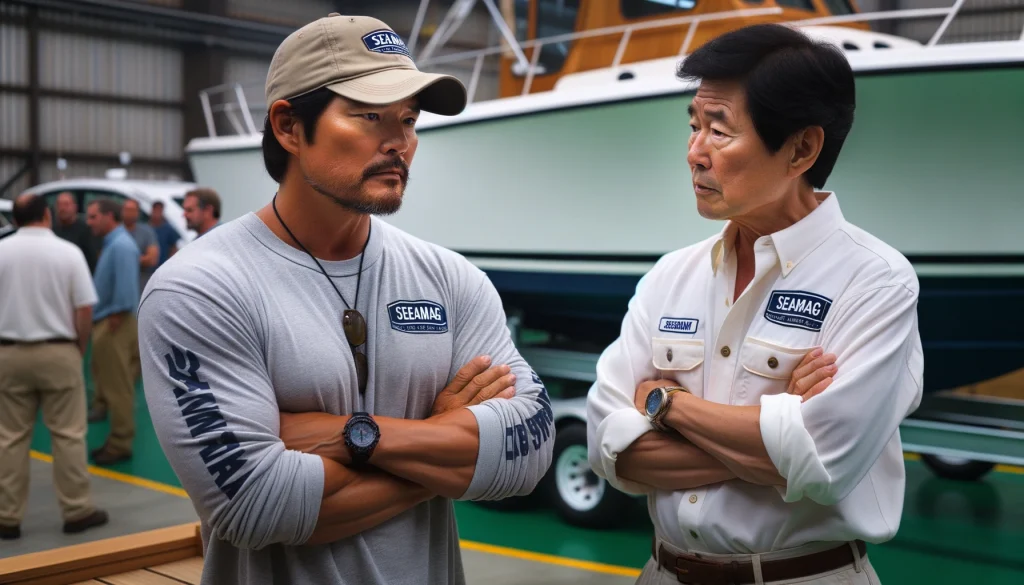
Q&A With Ohio Boater Education Safety Board
Charlie (Sea Magazine): Good day to our readers at Sea Magazine! Today, I'm speaking with representatives from the Ohio Boating License Board about the details of obtaining a boating license in Ohio. Welcome, and thank you for joining us!
Ohio Boating License Board Representative: Thank you for having us, Charlie. We're happy to discuss the lesser-known aspects of the Ohio boating license process.
Charlie: Fantastic. Firstly, could you clarify what an "Ohio voter education card" is? And how it relates to boating?
Representative: Absolutely. The term "Ohio voter education card" might be a bit misleading, as it doesn't directly relate to voting in elections. Instead, it’s a reference to the educational component required for boaters in Ohio. Once an individual completes the course, they receive a "course completion" certificate. This essentially acts as a temporary "voter education" certificate that showcases one's understanding of Ohio voter safety and the requirements of the state.
Charlie: So, the term "voter" here refers to the boaters in Ohio who are educated about safety?
Representative: Correct. Ohio voters safety is a priority. The intention is to ensure that anyone operating a boat powered by a motor understands Ohio law and the rules set by the natural resources division.
Charlie: What if someone is visiting from Canada? Do they need to meet Transport Canada's requirements or Ohio's?
Representative: Great question. Visiting boaters who meet Transport Canada's requirements are generally permitted to operate in Ohio waters. However, if they intend to stay beyond a certain period, they should familiarize themselves with Ohio laws as well. The natural resources division has guidelines for this.
Charlie: What if someone’s voter education certificate is damaged or lost?
Representative: In case of a damaged voter education certificate, or if it's lost, individuals can approach our main office at the Morse Road building for a replacement. They need to provide identification, like a state driver's license, and details of their course provider.
Charlie: I've heard there's an online exam too. How does that work?
Representative: Yes! With an internet connection, boaters can opt for an online exam through a course provider with course approval from our board. It offers interactive learning, and upon completion, you can take the certification exam.
Charlie: Is there a minimum age requirement or any age or operation restrictions to consider?
Representative: Ohio law requires that to operate a motorized vessel without a supervising person on board, the person must be at least 16 years of age and successfully complete all the education requirements. For those under 16, there are operator restrictions, like maintaining direct visual supervision by an adult who's met certification requirements.
Charlie: Let's talk about on-water adventures. How can one explore carefree and still stay within the legal bounds?
Representative: Well, Ohio promotes on-water adventures relaxing and enjoyable. But there are rules. If you rent from a rental business, they often provide a brief training, so you understand the basics. Plus, many offer boats with at least one endorsement from organizations like the Coast Guard Auxiliary which helps ensure safety standards.
Charlie: How does Ohio cater to non-residents, especially in terms of certification and learning?
Representative: Non-residents, if they wish to rent or operate a boat here, should ensure they meet our certification requirements. For those without, we offer courses that can be done online for interactive learning. If they've lost or damaged documents, they can approach our board for guidance.
Charlie (Sea Magazine): Circling back to a term we mentioned earlier, can you explain further what exactly an "Ohio voter education card" is, and how does it compare with the boating education certificate?
Representative: Certainly, Charlie. The Ohio voter education card is a certificate earned after completing the Ohio voters safety course. It’s a temporary proof of having undergone the required education. On the other hand, the boating education certificate is a more official document, indicating that the holder has not only completed the required training but has also passed any necessary exams to operate a boat in Ohio waters.
Charlie: So, in essence, once you finish the Ohio boaters safety course online, you first receive the temporary voter education certificate, correct?
Representative: Yes, that’s correct. After online course completion, the temporary voter education certificate acts as a placeholder, so to speak. It allows for some immediate privileges, like a temporary boating license. This is provided under the resources division of watercraft until the official Ohio boating license is processed and dispatched.
Charlie: That seems convenient. Now, what happens if this temporary license or the damaged boater education certificate gets lost or damaged?
Representative: Well, if the damaged boater education certificate, whether it's temporary or official, gets lost, boaters should contact the resources division of watercraft. They have protocols to provide replacements. However, always ensure you have a backup, like a digital copy, just in case.
Charlie: And are there specific age or operator restrictions to be aware of while using this temporary boating license?
Representative: Yes, indeed. Age or operator restrictions apply, especially for younger boaters. For instance, while the temporary license allows you to operate a boat, it might require adult supervision for those below a certain age. The Ohio boater safety guidelines are very clear on these limitations to ensure everyone's safety on the waters.
Charlie: It sounds like Ohio takes its boating education seriously, prioritizing the safety of its residents and visitors.
Representative: Absolutely, Charlie. At the end of the day, our primary concern is Ohio boaters safety. While we want everyone to enjoy the water, we also want to make sure they do so responsibly and safely.
Charlie: Thank you for these additional clarifications. It's important that our readers and boating enthusiasts are well-informed.
Representative: My pleasure, Charlie. Always happy to help and spread awareness. Safe boating to all!
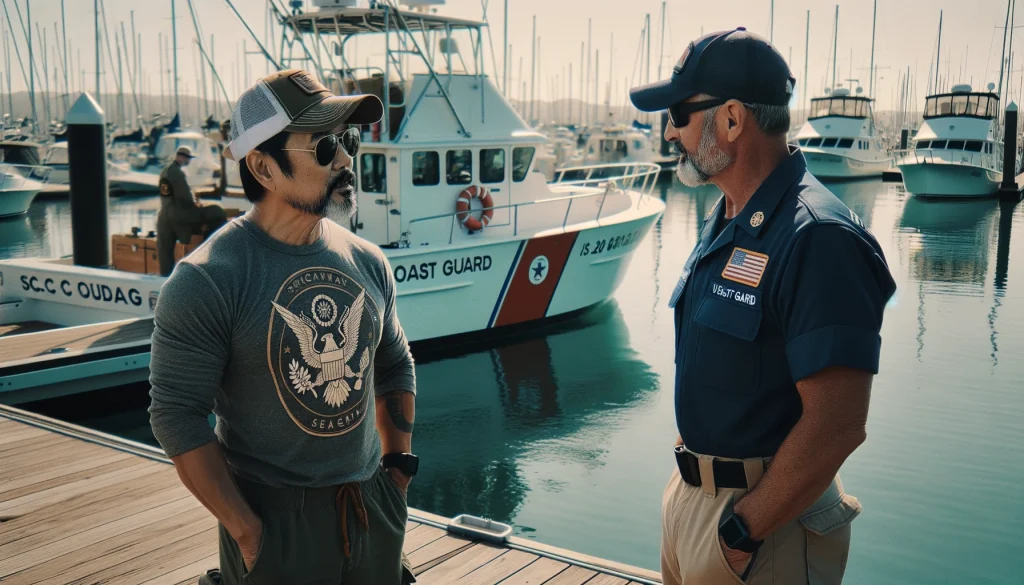
Q&A USCG
Charlie: Moving on, let's talk about the temporary boater education certificate. How does that work?
Robert: The temporary boater education certificate is a short-term certification for boaters who haven't completed their full boater education. It's especially useful for tourists or those new to boating.
Charlie: Does it differ from the Ohio Boater Education Card?
Robert: Yes, the Ohio Boater Education Card is a more permanent certification, indicating that the holder has completed the required boating safety course in Ohio. This card is recognized across many states.
Charlie: How do enforcement officers play a role in this?
Robert: Enforcement officers on the water ensure that boaters comply with safety regulations. They check for valid boater education cards and ensure everyone on the water is operating safely.
Charlie: And what is a delegated provider in this context?
Robert: A delegated provider is an organization authorized to offer boating safety courses and issue boater education certificates. They work in partnership with state agencies to promote boating safety.
Charlie: Regarding the boating card, are there age requirements for obtaining it?
Robert: Yes, there are age requirements that vary by state. Generally, younger boaters, often under the age of 16, must have a boater education card to operate a boat alone. The exact age can vary.
Charlie: Lastly, can you explain the concept of audible supervision in boating?
Robert: Audible supervision refers to the requirement that underage boaters, even if they have a boater education card, must be supervised by an adult. The adult should be able to give immediate and effective verbal instructions to ensure safety.
Charlie: That's very informative. Thank you, Robert, for shedding light on these important aspects of boating education and safety.
Robert: My pleasure, Charlie. It's all about ensuring a safe and enjoyable experience on the water for everyone.
Charlie is Editor-in-Chief of Sea Magazine